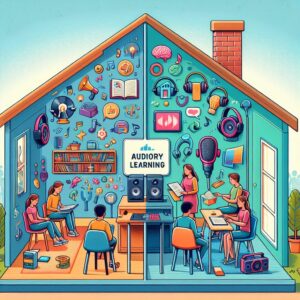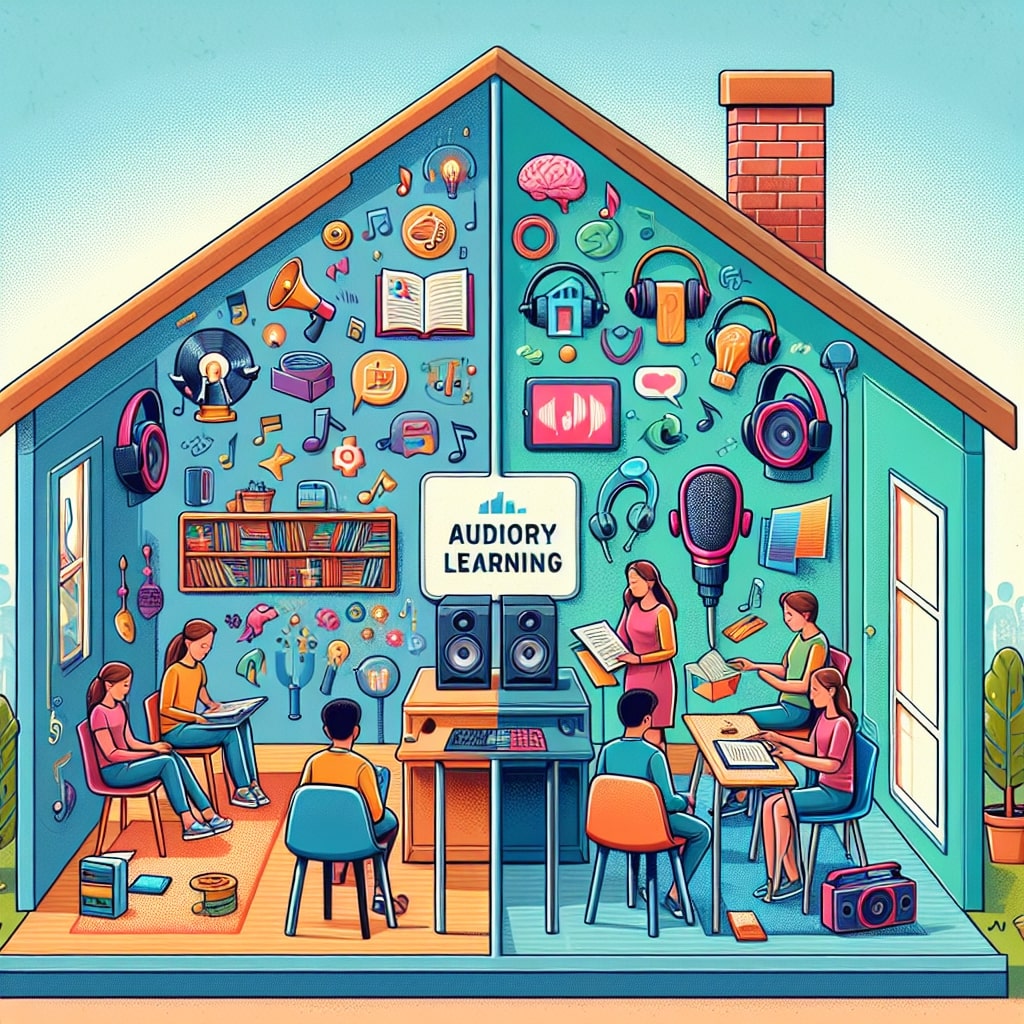Auditory learners thrive on processing information through sound and speech. Whether at home or school, this learning style demands tailored methods that leverage listening, speaking, and auditory cues. By implementing effective strategies, you can enhance their comprehension and engagement, helping them excel academically and personally. Below are 10 impactful strategies designed to empower auditory learners in various environments.
1. Encourage Active Listening and Paraphrasing
Auditory learners excel when they actively engage with spoken content. Encourage them to listen attentively to instructions, lectures, or conversations. Teach them to paraphrase what they hear to reinforce understanding. By rephrasing ideas or repeating information aloud, they anchor the knowledge in their memory.
Implementation Tip:
- At school, after a lesson, ask the learner to summarize key points aloud.
- At home, have them describe books, conversations, or tasks using their own words.
2. Incorporate Audiobooks and Podcasts
For auditory learners, audiobooks and podcasts serve as fantastic tools for absorbing information. These formats allow them to focus on tone, inflection, and rhythm, which aid retention. Choose resources tailored to their interests or academic needs to maximize engagement.
Implementation Tip:
- Use educational podcasts to supplement school lessons.
- At home, introduce fiction audiobooks to nurture creativity while improving language skills.
3. Leverage Rhymes, Songs, and Mnemonics
Rhymes, songs, and mnemonic devices make it easier for auditory learners to memorize information. These methods transform complex topics into rhythmic patterns, ensuring higher recall. For example, remember the periodic table or mathematical formulas through catchy tunes.
Implementation Tip:
- Teachers can develop subject-specific jingles for core lessons.
- Parents can make everyday routines memorable with fun chants.
4. Use Verbal Discussions and Debates
Auditory learners excel when they engage in verbal interactions. Discussions and debates not only reinforce knowledge but also improve their critical thinking and communication skills. Stimulate their interest by introducing diverse topics relevant to their curriculum or personal interests.
Implementation Tip:
- Organize group discussions during class to explore different perspectives.
- Host family debates on current events or thought-provoking questions to energize home learning sessions.
5. Provide Clear and Repetitive Oral Instructions
Clarity and repetition in instructions are crucial for auditory learners. They process verbal cues better than written directions. Repeat key points to reinforce understanding and ensure they fully grasp the concept or task at hand.
Implementation Tip:
- Teachers should pair written instructions with oral explanations during lessons.
- Parents can guide children by giving step-by-step verbal directions for activities.
6. Introduce Interactive Learning through Role-Playing
Role-playing is an engaging activity that resonates deeply with auditory learners. It allows them to vocalize thoughts, practice communication skills, and visualize scenarios through dialogue. This method is particularly effective for history, literature, and social studies lessons.
Implementation Tip:
- In school, assign roles for historical events or literary characters.
- At home, involve them in storytelling sessions with distinct voices for characters.
7. Utilize Group Work and Peer Teaching
Collaboration in group activities nurtures auditory learners by exposing them to different ideas and language expressions. Encourage them to participate in peer teaching, where they explain concepts to their classmates or siblings. This reinforces their understanding while boosting confidence.
Implementation Tip:
- Teachers can create group assignments that involve oral presentations.
- Parents can include siblings or friends in shared learning projects.
8. Record Lessons for Playback
Auditory learners benefit significantly from re-listening to lessons. Recording lectures or instructions allows them to revisit what was taught, ensuring any missed details are covered. This is especially useful for revision or tackling difficult subjects.
Implementation Tip:
- Provide access to recorded school lessons for review.
- At home, parents can record their instructions or discussions for kids to replay.
9. Create a Quiet Learning Space
Auditory learners rely heavily on sound, so a distraction-free environment is essential. Background noise or interruptions can hinder their focus and retention. Design a quiet study space that enhances their ability to engage deeply with auditory inputs.
Implementation Tip:
- At school, ensure they sit away from noisy areas.
- At home, designate a peaceful corner for studying or listening to lessons.
10. Utilize Technology for Auditory Engagement
Modern technology offers a plethora of tools to support auditory learners. From language-learning apps to virtual classrooms with interactive lessons, these resources cater to their auditory strengths and facilitate dynamic learning experiences.
Implementation Tip:
- Teachers can use apps like Duolingo or Quizlet with voice features.
- Parents can introduce learning-based games that incorporate sound cues.
Key Takeaways
- Active listening and verbal engagement are critical for auditory learners.
- Use tools like audiobooks, role-playing, and discussions to enhance understanding.
- Provide clear instructions and leverage technology effectively.
FAQs
1. What are auditory learners’ core strengths?
Auditory learners excel in listening, verbal communication, and memory retention through sound. They grasp concepts better when they hear and discuss information.
2. How can parents support auditory learners at home?
Parents can encourage discussion, provide audiobooks, involve them in debates, and ensure a quiet study environment to optimize their learning process.
3. Are auditory learning methods effective for all subjects?
Yes, teaching strategies like verbal explanations and audiobooks can be applied to a wide range of subjects, including STEM, languages, and the arts, making concepts easier to grasp.
By harnessing the unique capabilities of auditory learners, educators and parents can unlock their learning potential. These strategies not only cater to their distinctive needs but also nurture lifelong skills, setting them up for success in various endeavors.









